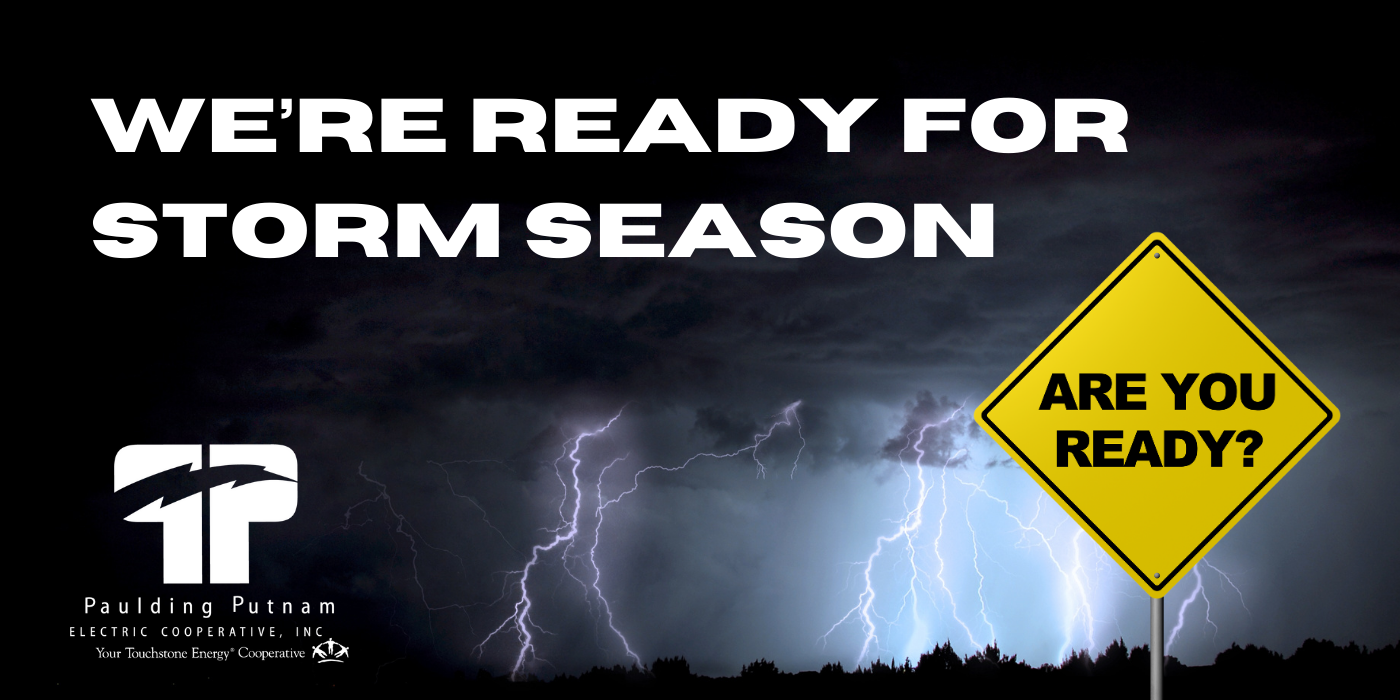With summer right around the corner, like many of you, we welcome more opportunities to be outdoors and enjoy the warmer weather. Summertime brings many of our favorite activities like cooking out with family and friends, afternoons on the water and simply slowing down a bit to enjoy life.
But summer months also make conditions right for dangerous storms. These potential weather events can cause destruction to our electrical system. PPEC wants you to know that crews are ready and standing by to respond should power outages occur in our area.
When major storms knock out power, our line crews take all necessary precautions before they get to work on any downed lines. We want to remind you to also practice safety and preparedness to protect your family during major storms and outages.
The Federal Emergency Management Agency recommends the items below as a starting point for storm and disaster preparedness, but you can visit www.ready.gov for additional resources.
- Stock your pantry with a three-day supply of non-perishable food, such as canned goods, energy bars, peanut butter, powdered milk, instant coffee, water, and other essentials (i.e., diapers and toiletries).
- Confirm that you have adequate sanitation and hygiene supplies including towelettes, soap and hand sanitizer.
- Ensure your First Aid kit is stocked with pain relievers, bandages and other medical essentials, and make sure your prescriptions are current.
- Set aside basic household items you will need, including flashlights, batteries, a manual can opener and portable, battery-powered radio or TV.
- Organize emergency supplies so they are easily accessible in one location.
In the event of a prolonged power outage, turn off major appliances, TVs, computers and other sensitive electronics. This will help avert damage from a potential power surge, and will also help prevent overloading the circuits during power restoration. That said, do leave one light on so you will know when power is restored. If you plan to use a small generator, make sure it’s rated to handle the amount of power you will need, and always review the manufacturer’s instructions to operate it safely.
Listen to local news or a NOAA Weather Radio for storm and emergency information, and check PPEC’s SmartHub app or website for power restoration updates.
After the storm, avoid downed power lines and walking through flooded areas where power lines could be submerged. Allow ample room for utility crews to safely perform their jobs, including on your property.
Advance planning for severe storms or other emergencies can reduce stress and anxiety caused by the weather event and can lessen the impact of the storm’s effects. Sign up for NOAA emergency alerts and warnings, and download our SmartHub ap from www.ppec.coop/sign-outage-notifications-smarthub to report and receive notifications of power restoration efforts right to the palm of your hand.



